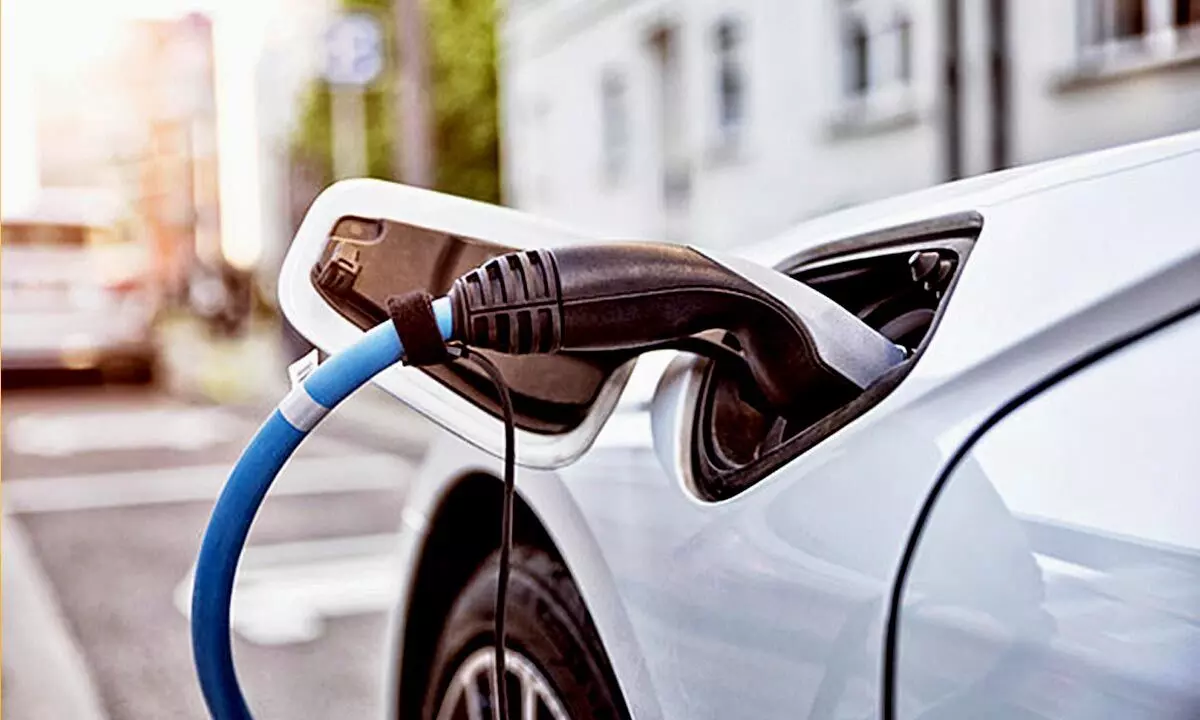India should seize the EVs jackpot to be the world’s top car manufacturer
With the electric vehicle market delivering extraordinary performances, it’s advantage India
image for illustrative purpose

According to Invest India, some 22.9 million vehicles were produced from April 2021 to March 2022. That indicates that India will be the world’s third-largest automotive market in terms of volume by 2030. India is already the largest market for Suzuki outside of Japan. It also figures in the top three markets for Hyundai, Kia and Skoda Auto while it was among the top five markets for Renault global in 2021
Automobiles and other motor vehicles have become near compulsions to millions of people across the globe. Undoubtedly, automobiles are an efficient way to move around irrespective of whether one is running errands, commuting to work, attending an event, exploring the most beautiful countries or visiting family and friends. They are integral to everyday life.
Some countries are known for engineering and manufacturing automobiles. They are often among the world's biggest producers of steel, as well as its most populous countries. Other countries lacking manufacturing infrastructure to meet the demand for automobiles opt to import them.
The automotive industry contributes around three per cent of the world’s total GDP output. That share is higher in emerging markets like China and India, where the automotive industry accounts for seven per cent of GDP.
The current global market for automotive manufacturing was valued at $2.9 trillion in 2022. It is presently growing at a CAGR of 3.1% following several years of decline where the market dropped by 0.6% between 2017 and 2022. This represented a decline that was faster than the decline of the Covid-hit overall economy. The industry is predicted to continue growing at a CAGR of 3.71% till 2030 and will consist of 122.83 million units by the end of the decade, representing a significant leap from 2020’s 85.32 million units. Currently, the automotive manufacturing industry tops the list of all global manufacturing industries in terms of market size.
S&P Global Mobility expects that vehicle sales globally will touch around 83.6 million units this year, a 5.6% increase from the previous year. In the U.S., in contrast, the data and consulting firm expects sales will be up by 7%, to about 14.8 million units.
While the automotive industry as a whole has continued to struggle, the Electric Vehicle (EV) market (including Plug-in Hybrid Electric Vehicles (PHEVs)) has delivered an extraordinary performance. Compared to 2021, electric vehicle sales grew by a forecast of 27.9% worldwide. It is expected to reach a growth rate of 25.2% this year. As in 2022, the largest regional market for electric vehicles in 2023 will be Asia-Pacific (6.8 million EV sales), followed by Western Europe (2.4 million EV sales), and North America (1.3 million EV sales).
India is the world’s fourth largest commercial vehicle-manufacturing country by output, having produced 4.4 million vehicles in 2021 as per the International Organization of Motor Vehicle Manufacturers. Meanwhile, China – as the world’s largest automobile manufacturer – pushed out 26 million vehicles the same year.
In spite of major disruptions, the Indian light vehicle market has swelled at a compounded annual growth rate of three per cent in the last decade while most of the matured markets have registered flat growth or even a negative growth. The 2011 production by India’s automotive industry stood at 3.9 million cars, according to the International Organization of Motor Vehicle Manufacturers statistics. But that number shows significant increase when one includes two-wheelers, three-wheelers and quadri-cycles. According to Invest India, some 22.9 million vehicles were produced from April 2021 to March 2022. That indicates that India will be the world’s third-largest automotive market in terms of volume by 2030.
High interest rates, supply chain problems and recessionary fears were among the major challenges for the global automotive industry in 2022.
India is already the largest market for Suzuki outside of Japan. It also figures in the top three markets for Hyundai, Kia and Skoda Auto while it was among the top five markets for Renault global in 2021.
While the automotive industry faces several challenges, EVs are leading the charge with growing global interest. The EY Mobility Consumer Index revealed that 52% of the intended car buyers globally favour either a fully electric (EV), plug-in hybrid (PHEV) or hybrid vehicle. There is a three-fold growth in preference for fully electric cars, up from seven per cent in 2020 to 20% in 2022.
The United States, Canada, Japan, China and South Korea dominate the premium SUV industry, accounting for more than 90% of worldwide production.
With the increasing sales of electric vehicles in India, automakers are investing in new technologies and increasing their production capacities to cater to the demand.

